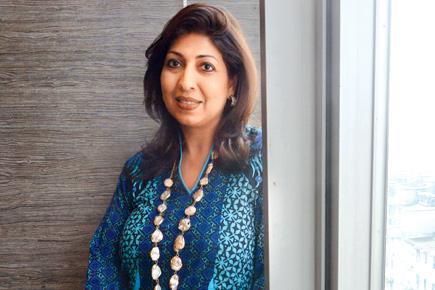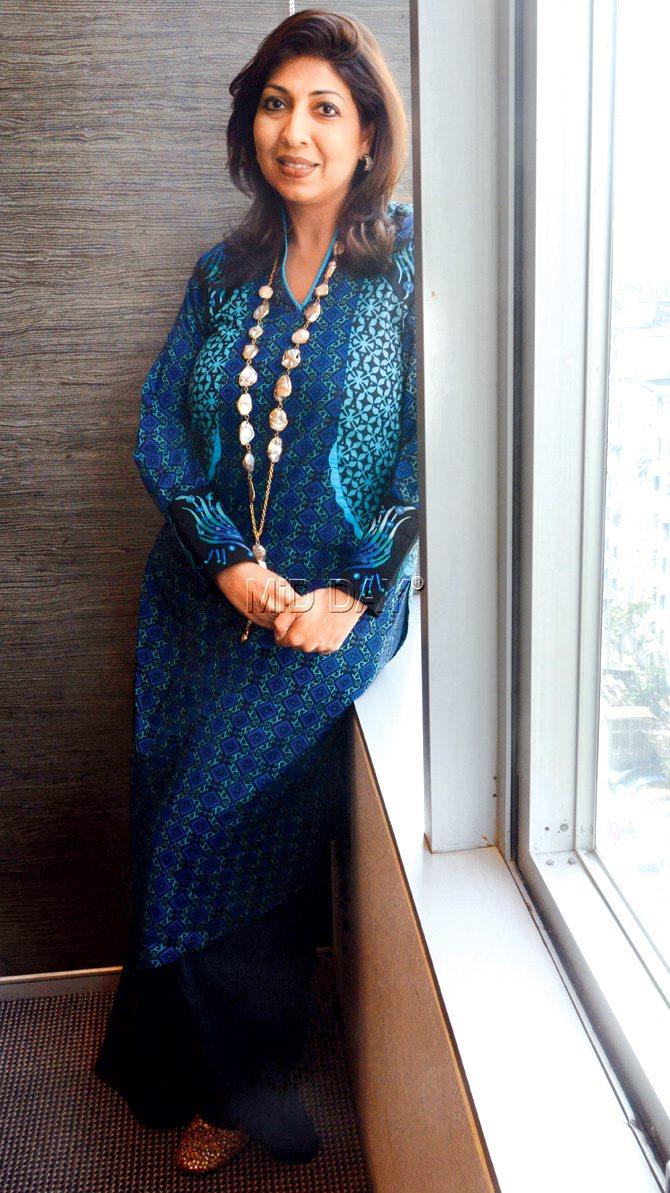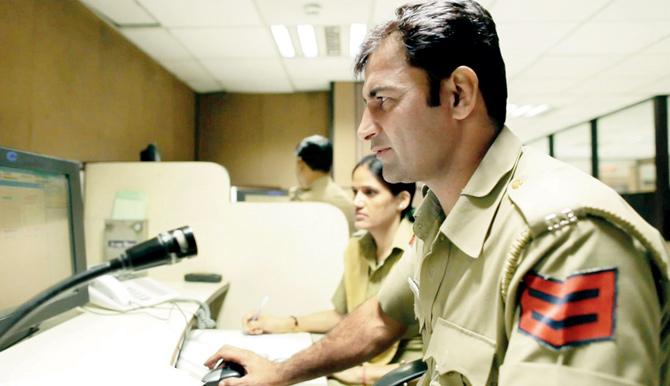As Vibha Bakshi receives the 62nd National Film Award for Best Film on Social Issues today for her documentary, Daughters of Mother India, Anju Maskeri catches up with the filmmaker who hopes to make the viewers think about how India can be made a safer place

Vibha Bakshi
The documentary film Daughters of Mother India, which is based on the events after the Delhi gang rape in 2012, has received accolades at home and a full house at the New York Film Festival. Today filmmaker Vibha Bakshi will receive the 62nd Annual National Film Award in Delhi.

Vibha Bakshi will receive the National Award for her film Daughters of Mother India today. Pic/Atul Kamble
ADVERTISEMENT
A former business reporter, her earlier films include Terror At Home, which was part of the United States government’s Emmy Award-winning campaign to stop violence against women, and Too Hot Not to Handle, HBO’s film on global warming.Bakshi talks about making the award-winning film:
Q. Why did you decide to make a documentary on Nirbhaya?
A. A lot of people were thinking of making a documentary on Nirbhaya but it was a matter of who was able to gain access to authorities and case studies. The question that is being asked in New York is how come no Indian made a film on Nirbhaya? We all know what happened that night, but Daughters of Mother India is about what happened after the incident — when the country raised its voice for justice and change.

A still from the film shows the Delhi Police command and control room
Q. How difficult was it to portray sexual violence on screen?
A. Our team made a conscious decision that an issue like gender violence had to be dealt with in a very responsible manner. The idea was not to sensationalise but to sensitise the audience on the subject. I am so grateful for the National Award as it acknowledges the fact that we created a responsible film for India.
Q. How did you begin work on the documentary?
A. You need passion, commitment and belief in the subject to make a documentary film. I felt so proud as an Indian to watch activists and protesters come out on the streets to demand justice. That is when I knew there was a story to be told.
It was important to document the movement while it was on. The police, who were at the frontline of the fire, played a crucial role. The challenge was to gain access to the police. We spoke to the Police Commissioner of Delhi, Neeraj Kumar. For the first time, cameras were allowed in the Delhi Police command and control room. It took us approximately a year to make this film.
Q. What were the main challenges you faced during the filming?
A. Our toughest challenge was getting access to the authorities and talking to people. One goes through an emotional turmoil while dealing with a rape survivor and her family. For the film, we had to interview a five-year-old rape survivor. The night we were to shoot, I wasn’t sure I had the courage to fulfill the task. I called up my husband, Vishal, and told him that as a mother of two young children, I was too emotional to interview the survivor and her family. He said: ‘You cannot unsee (sic) what you have seen. The only closure you’ll get is when the film is made and it changes someone’s life.’ That line made us go on.
Q. What did you keep in mind to ensure you didn’t misuse the subject for commercial success?
A. It is difficult to sell a story that has not been sensationalised. Our biggest achievement was gaining the support of the government, academia and the cops. Today the film is being screened for the entire police force. Our toughest critics have embraced it.
Q. What are your views on the way the India media covered these recent cases?
A. Media played a very important in giving momentum to the movement as it has been relentless in its reportage. The documentary, which has no star backing, has got the media attention it deserves.
Q. You have also worked on a documentary on the Shakti Mills gangrape case and the gangrape of a ragpicker in Mulund. What is the common thread that emerges in these cases, apart from the brutality and gender violence?
A. Gender bias is the common thread in all the cases. Society reflects a certain mentality, which needs to change. My film does not have the answers, but I hope it makes the viewer think about how India can be made a safer place.
Q. Leslee Udwin made a documentary on the same topic. Where do you think lies the difference between your film and the BBC documentary, India’s Daughter?
A. Only the titles of the films sound similar. I’m the other side of the coin. Mine is India’s story about hope.
Q. What is the biggest change that has happened after the release of this film?
A. That we have initiated a dialogue, and a movement has begun. We are talking, and must keep talking. Change will not happen overnight but this is a step towards the change. The conspiracy of silence has been broken. There are far more cases being reported. The shame has been shifted from the survivor to the culprit.
 Subscribe today by clicking the link and stay updated with the latest news!" Click here!
Subscribe today by clicking the link and stay updated with the latest news!" Click here!







